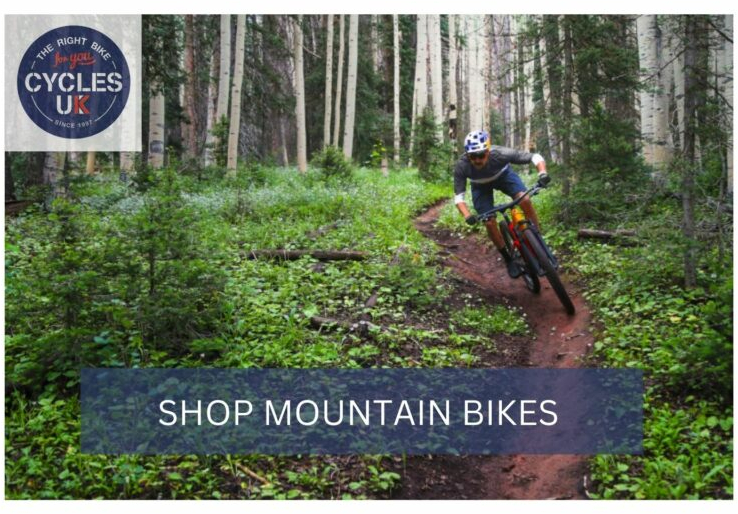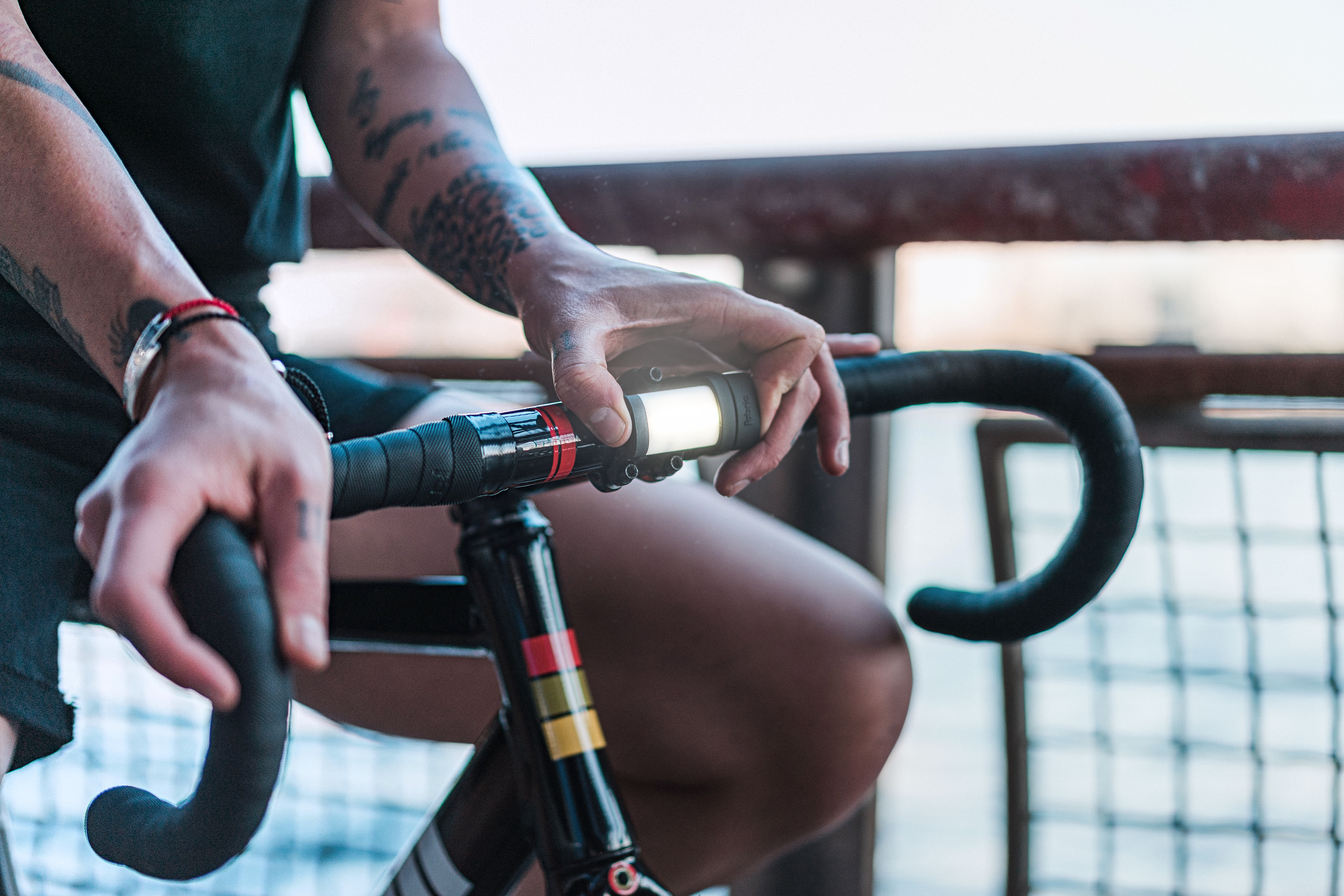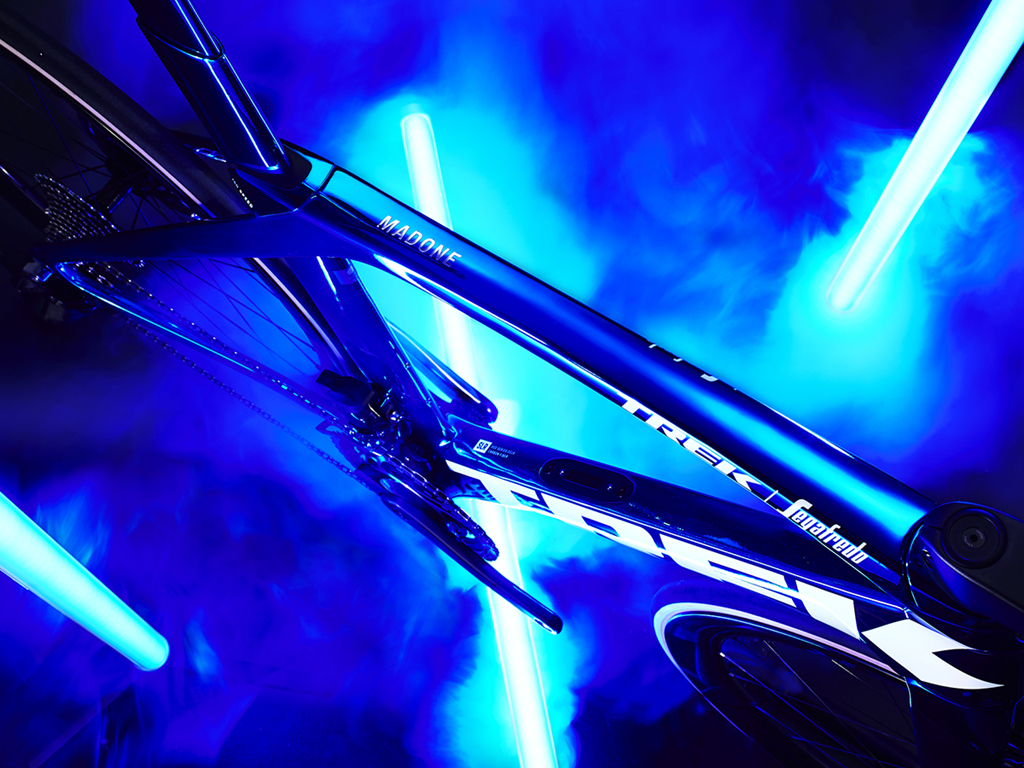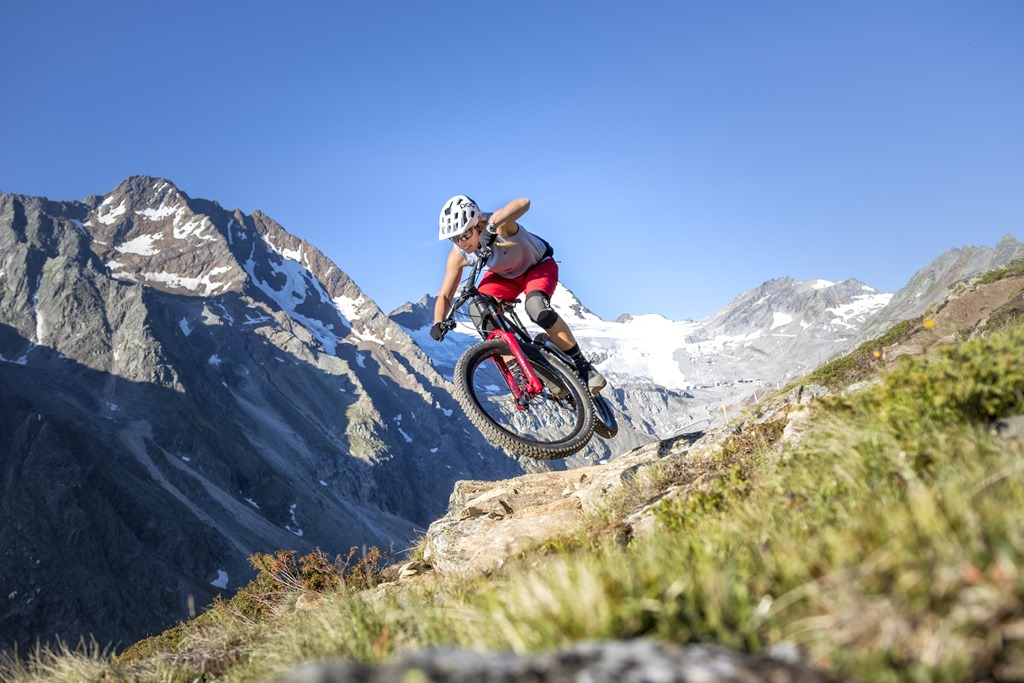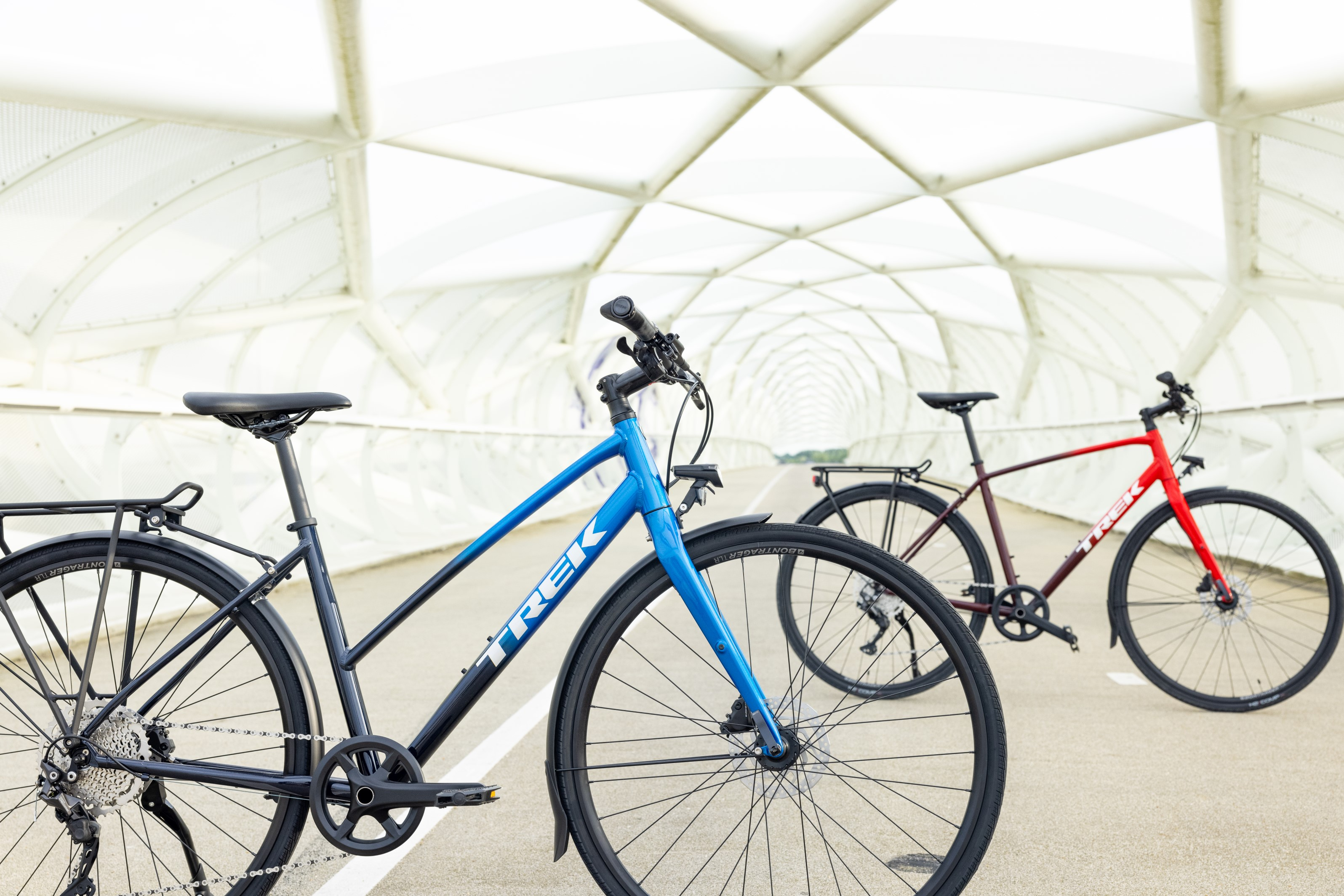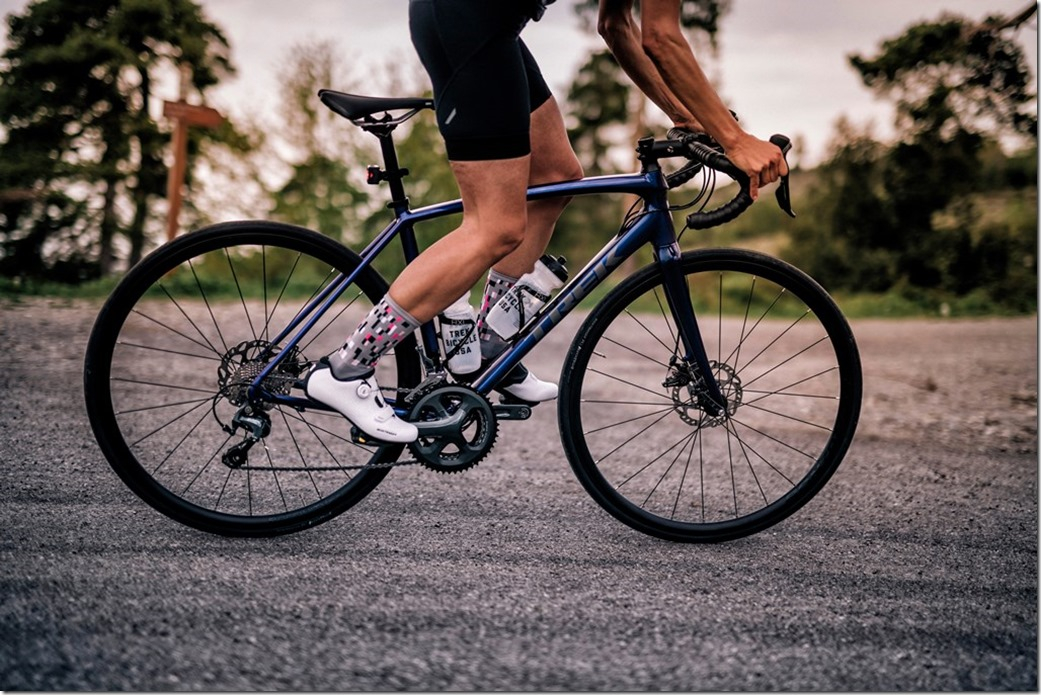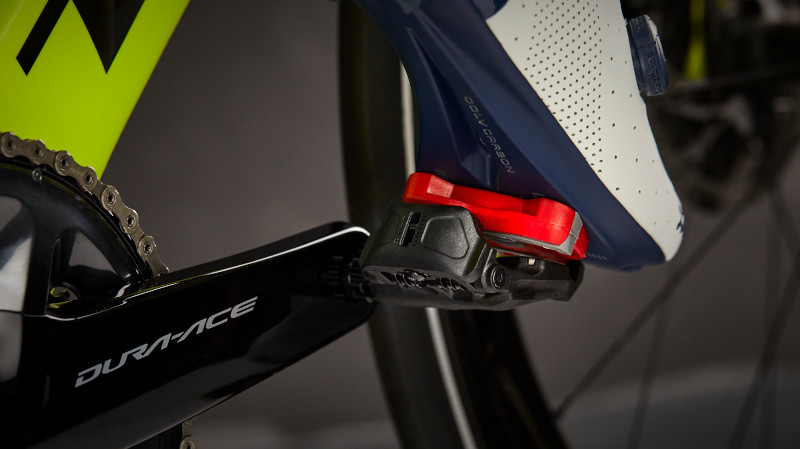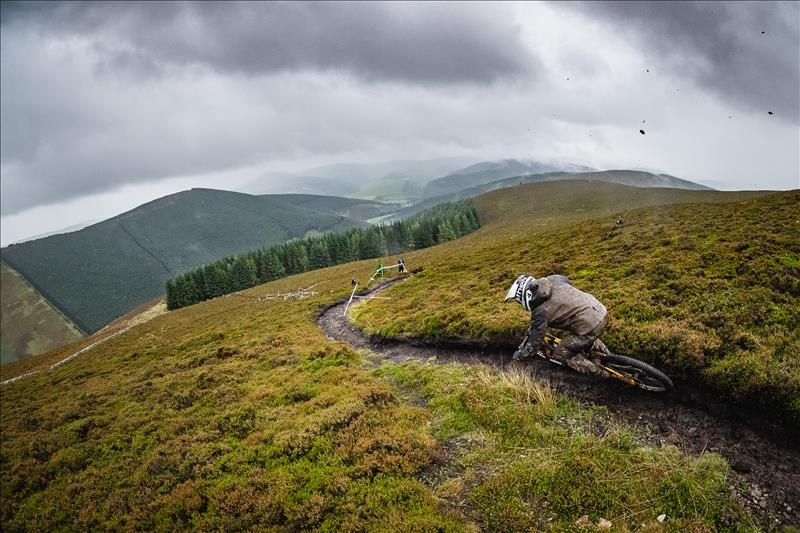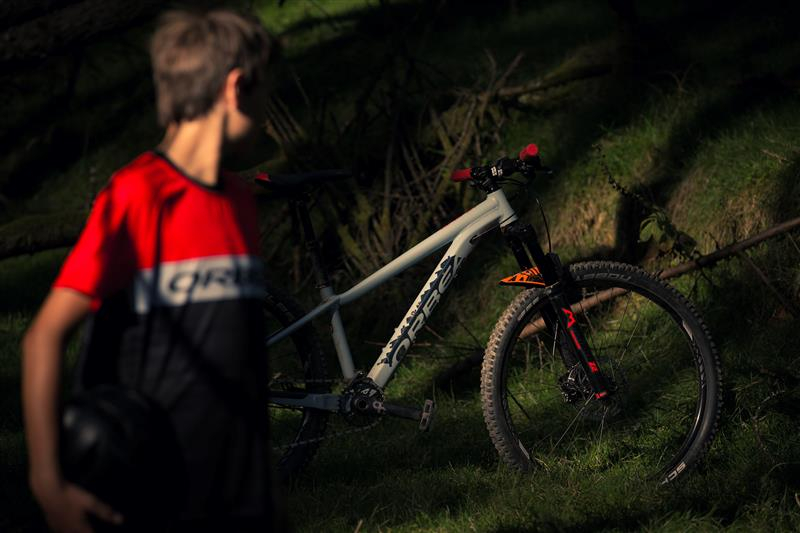Mountain Bike Buying Guide
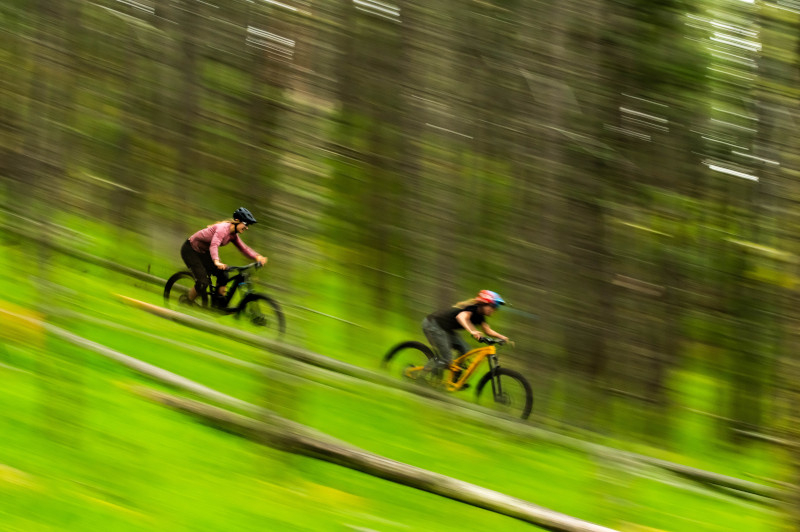
Mountain Bike Buying Guide
Mountain biking is an incredibly diverse sport. In this Mountain Bike Buying Guide we won’t be covering some of the really niche options out there (rigid single speeds and slopestyle bikes). Instead we’ll focus on the kind of mountain bikes that most riders in the UK buy and use.
Men’s and women’s mountain bikes
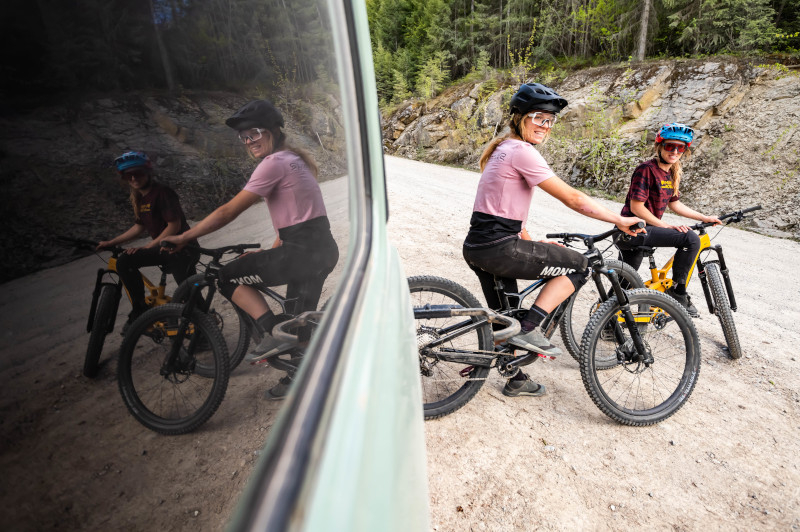
Nearly all the mountain bikes we sell are now unisex. All of the big brands have gradually stopped doing dedicated men’s and women’s bikes over the last few years. Instead they are focussed on producing bikes in a bigger range of sizes. So, for instance, the Trek Marlin 5 is a unisex bike that now comes in sizes from XXS to XXL large. This means it will fit riders from 4’ 5” to 6’ 5” and everything in between.
Wheel and Tyre Sizes
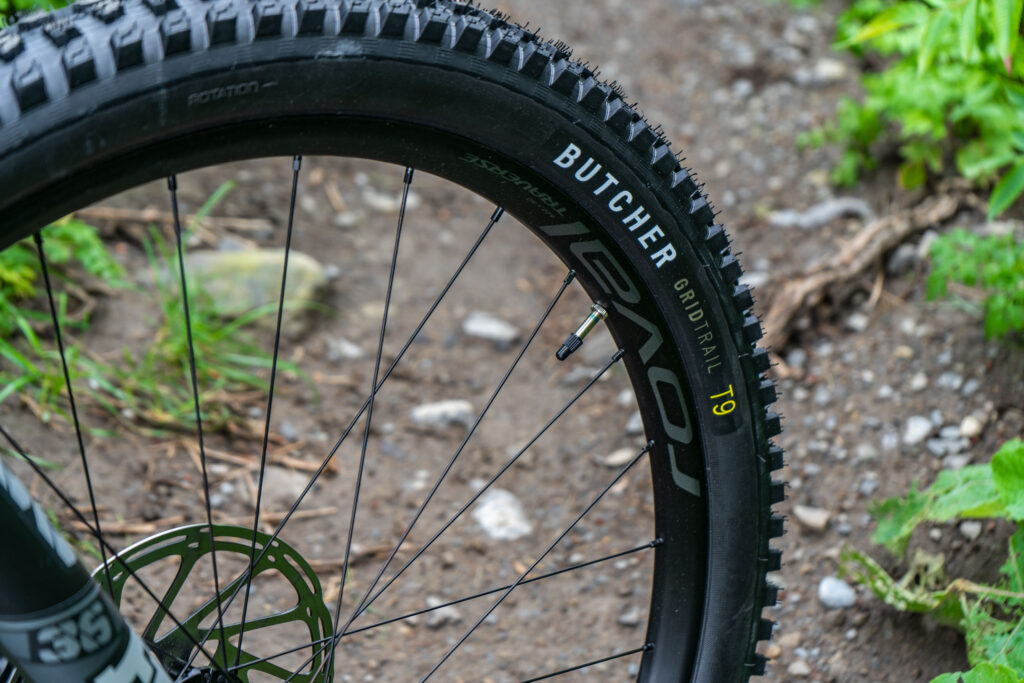
For a long time 26 inch wheels were the standard for mountain bikes. They are now only really used on kids bikes. The new default standard is 29 inch with some bikes being available with 27.5 inch wheels. 29er wheels are commonly used on race bikes because they are fast and can roll over obstacles allowing you to maintain speed better. 27.5 inch wheels are more nimble on tight, technical trails and are quicker to accelerate. So you find 27.5 inch wheels being used on some dedicated trail bikes.
On a lot of mountain bikes you will get different wheel sizes for different height riders. Small and xsmall frame bikes often come with 27.5 inch wheels while larger bikes come with a 29 inch wheel. This is to reduce the total height of the smaller bikes and make them easier to handle.
As the diameter of wheels has grown from 26 inch to 29 inch so have the width of the tyres. 2.1 inch wide tyres used to be a standard size. These are now considered ultra-narrow and 2.4 or 2.6 inch are common widths. The wider tyres give more grip and stability so making the bikes easier to handle.
Where are you going to ride and can you jump?
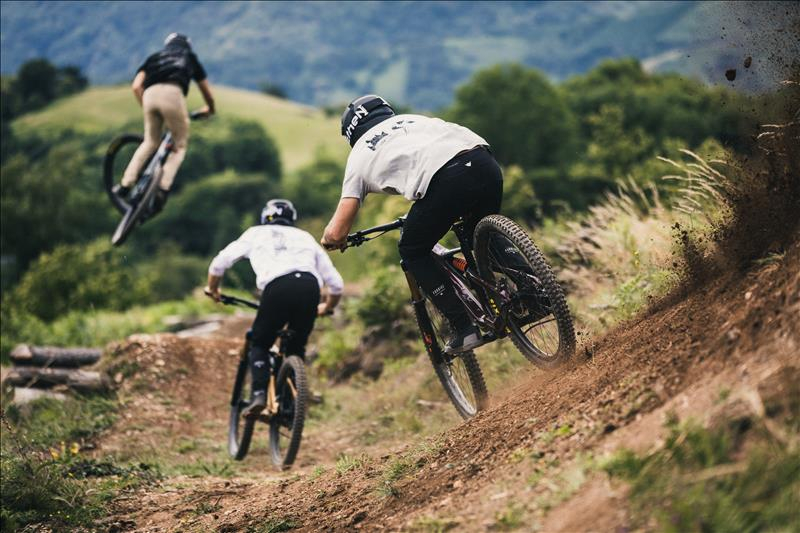
Mountain bikes now come in three main flavours. They are XC, Trail and Enduro.
XC – short for cross country, are quick race bikes. They will normally have 29” wheels and come with 100mm of suspension. If you are mainly going to be riding bridleways and natural trails in the South East of England, where our shops are, an XC bike will be the quickest and most efficient option.
Trail – these bikes are designed to be pedalled up and down hill and for use on bridleways and natural trails, but also at dedicated trail centres. They normally come with 130mm or 140mm of suspension travel and can have either 27.5” or 29” wheels, but 29” is quickly becoming the norm. Trail bikes are good all-rounders. They won’t be as fast as an XC bike on the flat but they can handle a lot more challenging terrain, and a few jumps. If you plan on taking your bike to trail centres in Wales, or to the Alps, then a trail bike may be your best option.
Enduro – enduro racing is a thing in and of itself but many people buy enduro bikes for ‘aggressive’ trail riding and uplift days at places like Bike Park Wales. This generally means challenging downhill trails with some big jumps. With around 160mm of suspension travel enduro bikes can take some big hits. They are designed to be efficient enough to pedal up hills but really come into their own when pointed downhill. You get enduro bikes in either 27.5” or 29” wheel sizes as well as mullet setups of 29 at the front and 27.5 at the back.
While those are the three main flavours of mountain bike a growing sub-category is down country bikes. These sit between XC and Trail and generally come with about 120mm of suspension travel and 29” wheels. They are designed to be as fast as an XC race bike but be able to handle some tougher trails. This makes them perfect for a lot of UK riding in places like the Lake District, Peak District or Scotland where you will want to cover big distances on rocky and narrow natural trails.
Hardtail or Full Suspension
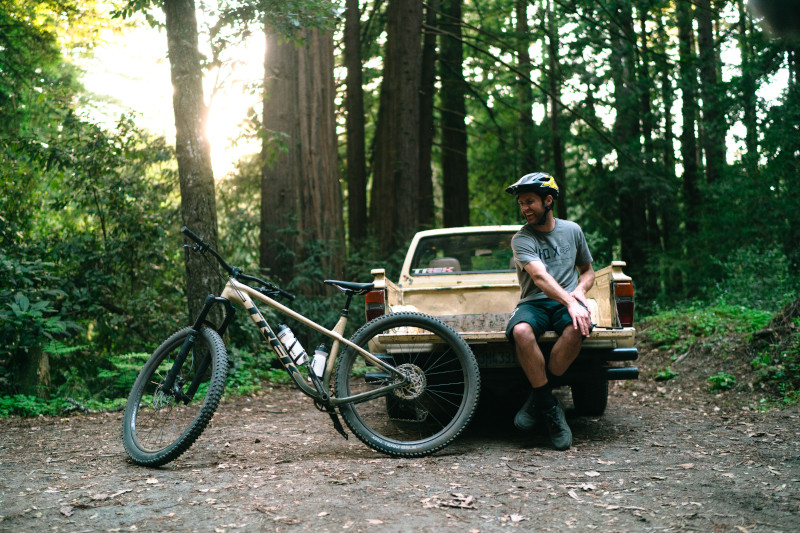
Most bikes under £2000 will be hardtails. That means they have suspension at the front but not at the back. As well as making them cheaper to make hardtails are more efficient when used on the road, or climbing, as none of the power you put into the pedals is absorbed by the suspension. However, on a full suspension bike you can often get up more technical climbs as the bike will grip better and roll over roots and rocks more easily. Full suspension bikes are also generally faster going downhill.
If you are riding in the South East of England, where our shops are, you generally don’t ‘need’ full suspension for riding on bridleways and farm tracks. If you are going to be riding purpose built trails and jumps, or riding in other parts of the UK, then full suspension will be more fun and open up more riding possibilities.
1x drivetrains
The trend in mountain bikes is towards having less gears. The current standard is to have 1 small chainring at the front and then 12 cogs at the back. This will get you up the steepest hills you can find in the UK. Cheaper bikes will often still come with 2 or 3 chainrings at the front which can be good if you are going to use the bike for commuting as it gives you more top-end speed on the road.
Our favourite XC mountain bikes
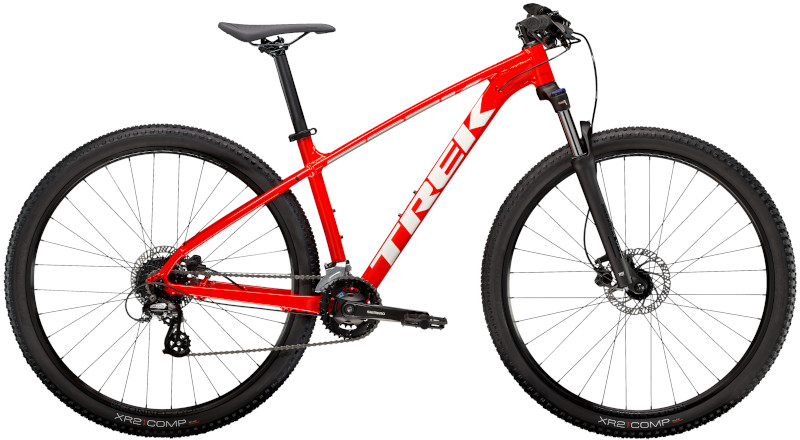
Trek claim that the Marlin is the world’s best selling mountain bike and the Marlin 5 is the best selling model in the range. Trek pitch this as a good all-round bike. You can definitely use it for riding off-road but you can also attach a pannier rack and use it for commuting.

Where the Marlin is a general use bike the X-caliber is a dedicated XC bike. It’s great for racing on but also good for anyone who wants to cover big distances on a light and efficient bike. It comes with all the parts you would expect from a modern XC bike including 100m travel forks, 1x drivetrain, dropper seatpost and tubeless ready wheels.

Specialized make an XC bike called the Epic which they claim to be one of the lightest production bikes in the world. The cheapest Epic is £3300. The Chisel is basically the same bike but with a lightweight aluminium frame instead of a lightweight carbon frame. This 29 inch wheel bike comes with 100mm travel forks and a 1x drivetrain. It’s super-fast on the flat, floats up climbs and excels on tight and twisty woodland singletrack.
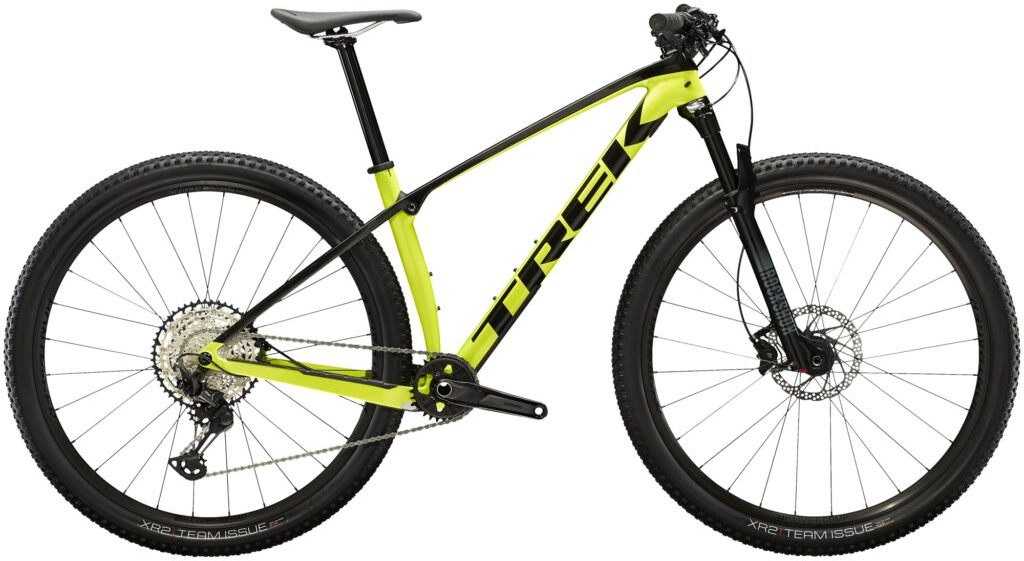
The Procaliber comes with a carbon fibre frame which includes an IsoSpeed decoupler. This allows a small amount of controlled movement at the back of the bike to soak up bumps. As an XC race bike the idea is to allow you to stay in the saddle pedalling for longer on rough ground.
Our favourite down country bikes

Whereas the Gen 2 Trek Marlin is based around an XC orientated frame the new Gen 3 bikes use a trail orientated frame. This means slacker angles and a longer wheelbase which makes the bike handle more confidently off-road. It still comes with 10mm travel forks and 29 inch wheels gets you into more trail riding territory.
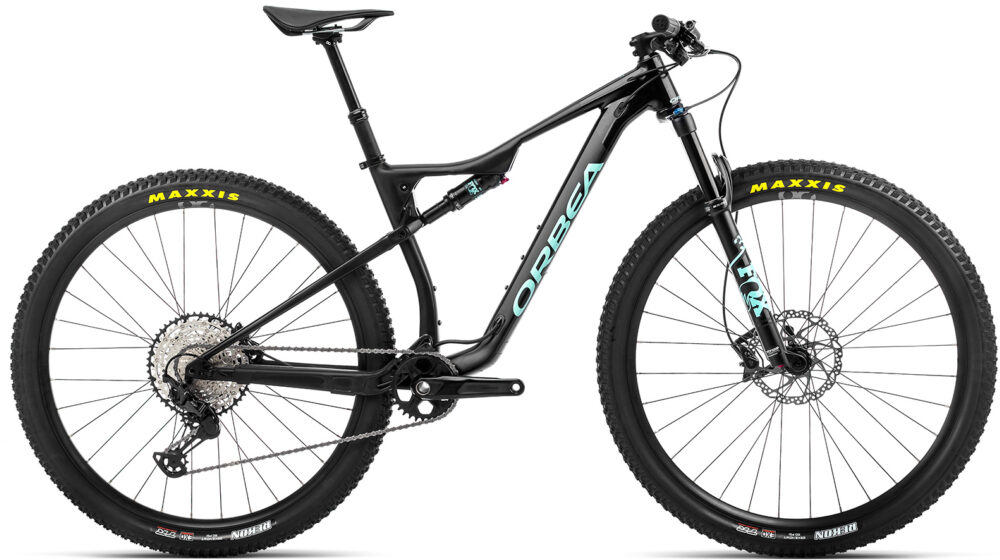
Orbea do two versions of the Oiz. The standard version is a 100mm travel full suspension XC race bike which is used by the Orbea World Cup race team. They also do a TR (trail) version which uses the same frame but increases the suspension travel to 120mm. So you get a bike that is super-fast but has more travel to handle rougher tracks and trails. This makes it great for a lot of natural riding in the UK.
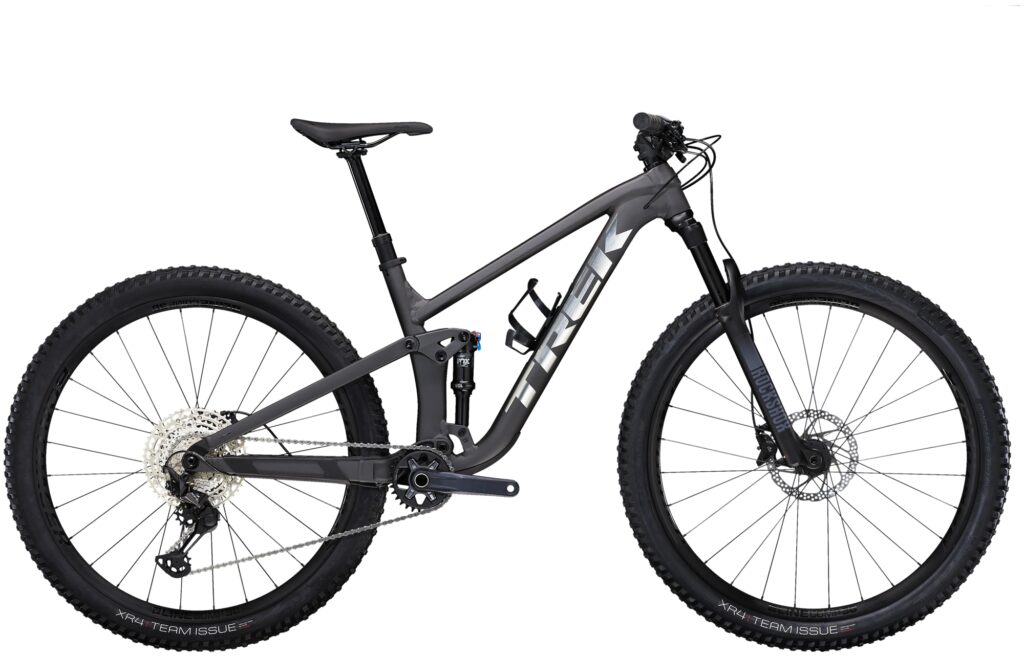
While the Oiz is a factory modified version of an XC bike the Top Fuel is purpose built as a down country bike, or short travel trail bike as Trek call it. With 120mm of travel and 29 inch wheels it is XC fast but can handle technical steep and rocky trails. The Top Fuel also comes with Mino Link which allows you to make small adjustments to the bike’s geometry so you can tune the ride to get it exactly how you want it.
Our favourite trail bikes
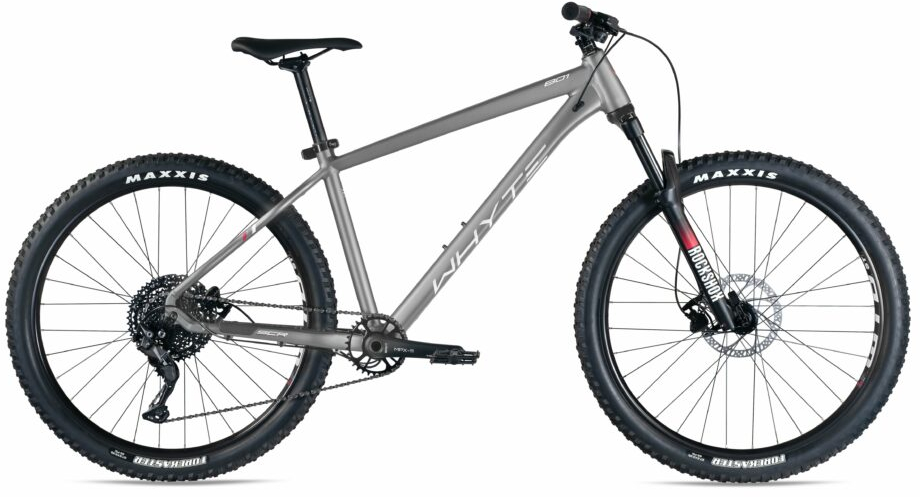
Whyte design their bikes in the UK and were one of the pioneers of trail hardtails. Their bikes regularly win awards due to the great handling characteristics. The 801 follows the standard template for a trail hardtail with 120mm travel forks, a super short stem and wide handlebars. It also comes with 27.5 inch wheels with wide 2.6 tyres. This makes the bike super stable and more manoeuvrable on tight and twisty trails.
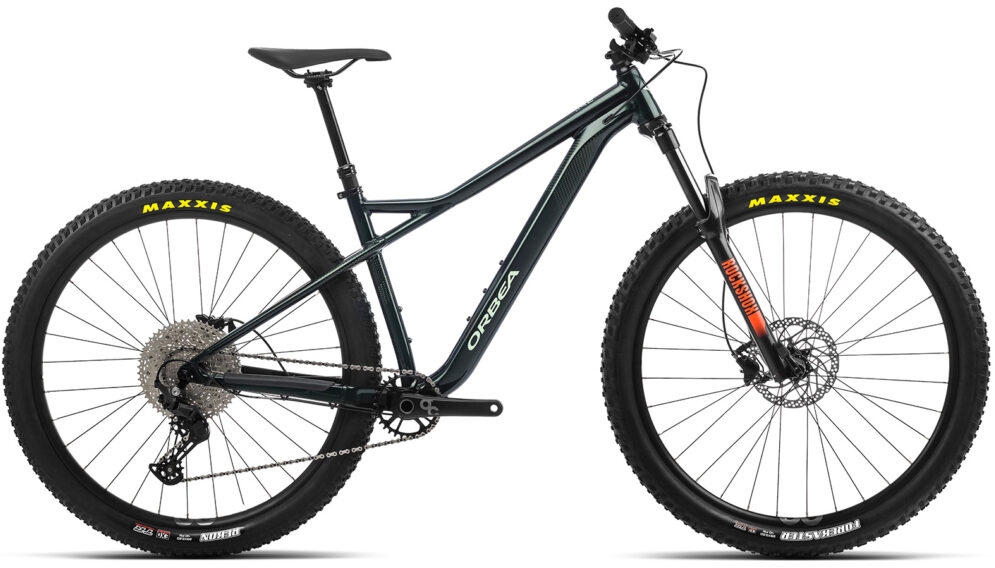
The Laufey takes the same basic concept of the Whyte and amps it up a bit. It comes with a 140mm fork instead of 120mm and comes with 29 inch wheels to make it faster. This makes the bike really versatile for use on natural trails, trail centres and bike parks. Orbea have deliberately used tried and tests, reliable and hard wearing parts on the Laufey so you can ride for longer between trips to the bike shop.
Specialized Stumpjumper Alloy - £2250

Specialized have been making a bike called the Stumpjumper for almost as long as there have been mountain bikes. Over the years it has evolved from a fully rigid 26 inch wheel bike, to a fast XC race rig and now it’s a 29 inch wheel full suspension trail bike. There are both aluminium and carbon fibre versions of the Stumpjumper, this is the base model in the range. Specialized call it a ‘mid-travel’ trail bike and it comes with 130mm of suspension at the back and 140mm at the front. Specialized have developed size-specific suspension tuning for the Stumpjumper. So whether you have the smallest or biggest bike you get the same ride characteristics. These bikes also come in sizes S1 to S6 rather than small, medium and large. The idea is that you can ride a couple of sizes either side. So you can go down a size for a more nimble bike, or up a size for one that’s more stable at speed.
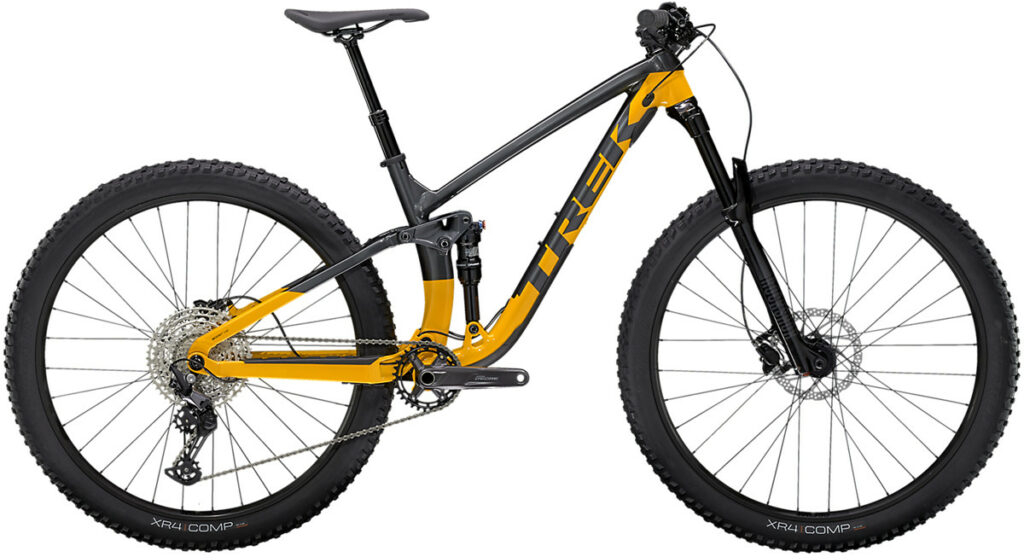
The Fuel is Trek’s do it all bike. If you don’t know what bike you need then a Fuel is versatile enough to handle most trails you can point it at. Like the Stumpjumper it has 130mm of travel at the back and 140mm at the front. The smallest Trek Fuels come with 27.5 inch wheels while larger sizes have 29 inch wheels. Like the Stumpjumper there are carbon and aluminium versions of the Fuel. The EX 5 is the entry level aluminium bike and comes with a value focussed specification.
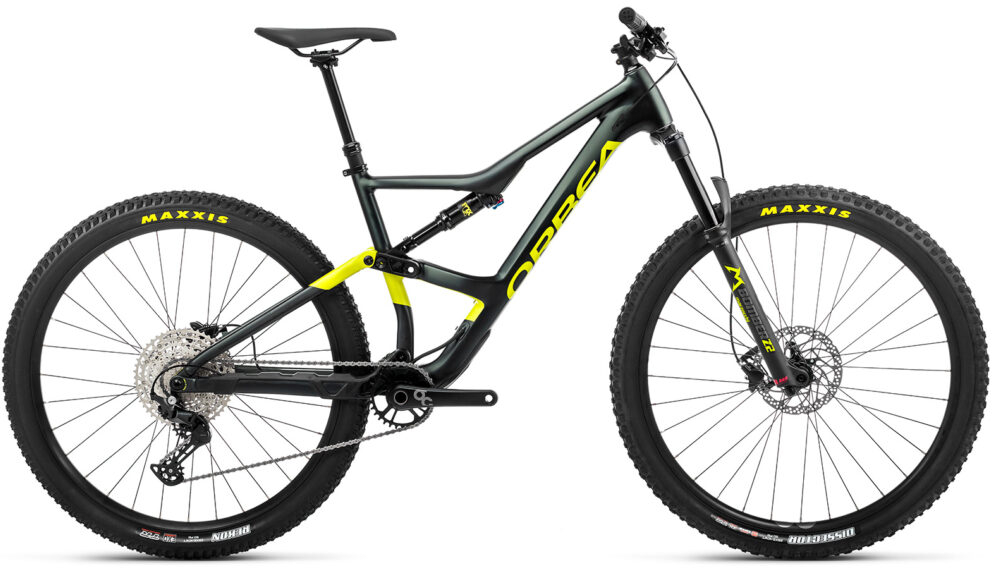
The Occam comes with slightly more travel than the Fuel or Stumpjumper with 140mm at both the front and the back. There is also a long travel (LT) version available with 150mm travel. The Occam climbs well and can definitely be used for all day rides but it can also handle bike parks, jumps and uplift days. If you are going to be riding mainly at trail centres, or on a lot of really technical trails with jumps, then the Occam may be the way to go.
Our favourite enduro bikes
Specialized Enduro Comp - £5000

As the name suggests the Specialized Enduro is an Enduro bike. It uses a lot of the same design features as Specialized’s downhill race bike, the Demo. But the Enduro has ben setup so that you can still pedal your way back to the top of a hill ready for your next run. It’s a full carbon frame with 170mm of travel front and rear and 29 inch wheels. Like the Stumpjumper it uses S sizing so you can go up or down a size depending on your riding style.
Whyte G-180 RS MX - £4199
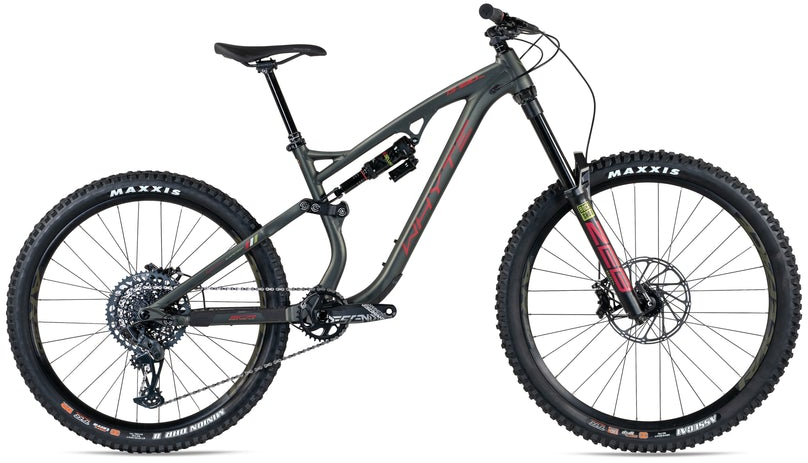
The G-180 comes with 180mm of travel front and rear. That’s the kind of travel you would have found on a downhill bike a few years ago. This aluminium frames bike has won rave review for how nimble it’s handling is. That’s partly down to the mullet setup with a 29 inch wheel at the front and 27.5 at the back so you can carve into tight corners while maintaining a ton of speed.
